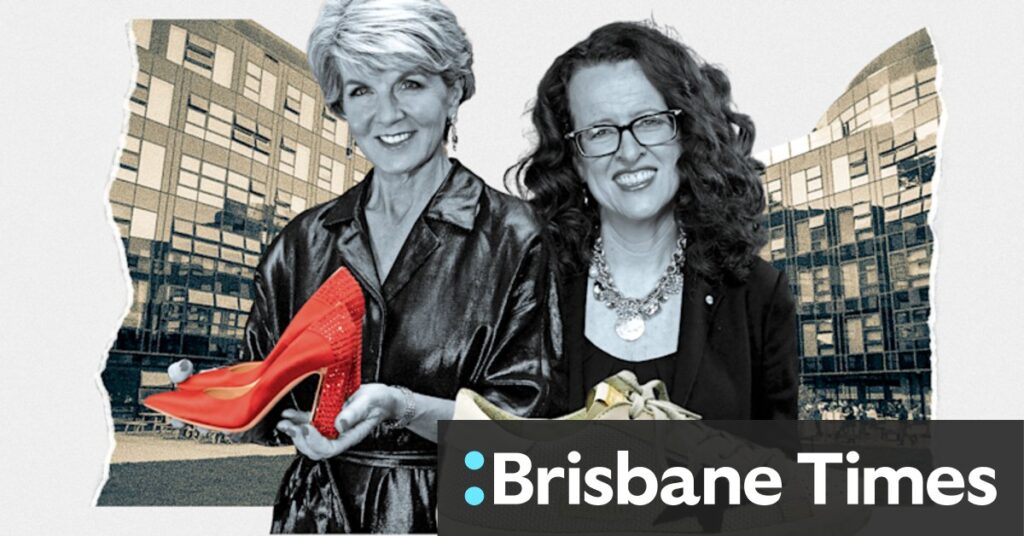
The Australian National University (ANU) finds itself embroiled in a complex crisis as Vice Chancellor Genevieve Bell and Chancellor Julie Bishop navigate a turbulent financial landscape and mounting controversies. This situation is compounded by revelations of Bell’s previous employment with Intel and Bishop’s significant travel expenses. The unfolding events have sparked debate over leadership effectiveness and financial transparency at one of Australia’s leading universities.
Bell, who was appointed as Vice Chancellor in September 2023, was previously engaged with Intel while assuming her role at ANU. This dual employment was disclosed only after she had earned approximately $70,000 from Intel within her first ten months as Vice Chancellor. This revelation surprised many in the academic sector, raising questions about the demands and expectations of her position.
Background and Leadership Challenges
Genevieve Bell, a renowned figure in technology and academia, was brought back to Australia in 2017 by Nobel laureate Brian Schmidt to lead ANU’s new School of Cybernetics. Her appointment as Vice Chancellor marked a significant transition, yet it was not without personal and professional challenges. Bell faced criticism for her appearance and was advised to conform to traditional professional norms, highlighting the cultural shifts she had to navigate.
However, the more pressing challenge was ANU’s financial instability. The university had been operating at a deficit since the COVID-19 pandemic, exacerbated by the Australian government’s refusal to extend JobSeeker payments to universities. Additionally, the Coalition’s Job-ready Graduates package reduced funding, impacting the viability of several courses. ANU’s financial woes were further compounded by infrastructure rebuilding and previous weather-related damages.
Financial Transparency and Governance Concerns
Amidst these financial difficulties, ANU announced a plan to cut $250 million from its budget, including $100 million in staff reductions. Over 220 staff members have already departed through voluntary or forced redundancies. Despite these measures, the extent of ANU’s financial crisis remains unclear, with some questioning whether the cuts are justified.
The Tertiary Education Quality and Standards Agency (TEQSA) is investigating ANU’s financial governance, questioning how the university reached this precarious position. Andrew Norton, a higher education policy expert, remarked,
“If the ANU’s finances are as bad as Bell and Bishop say they are, why wasn’t this issue addressed earlier on?”
Controversies and Cultural Criticisms
Julie Bishop’s role as Chancellor has also been scrutinized. Her travel expenses, notably a $186,000 trip to the World Economic Forum in Davos, have drawn criticism. Moreover, allegations of hostile behavior towards staff have surfaced, further complicating her tenure. Dr. Liz Allen, a former council member, accused Bishop of being dismissive and confrontational, claims which Bishop has denied.
The leadership crisis at ANU has sparked a broader debate about gender and leadership. Bell has described the criticism against her as a manifestation of “tall poppy syndrome” and sexism, arguing that her male predecessors did not face similar scrutiny. However, some female academics have countered this narrative, asserting that Bell’s performance should be subject to the same critique as any leader, regardless of gender.
Future Directions and Implications
As ANU grapples with these challenges, the university’s future remains uncertain. The financial restructuring aims to stabilize ANU’s finances, but the impact on staff morale and university culture is yet to be fully understood. Bell remains optimistic, stating,
“I was raised to be really clear about why you do things. To believe that your work should make the world different through the dint of your labour.”
The ongoing investigation by TEQSA will be crucial in determining the next steps for ANU. The agency’s findings could influence governance reforms and leadership accountability. Meanwhile, the university community continues to call for greater transparency and effective leadership to navigate this critical period.
As ANU seeks to recover and redefine its path forward, the lessons learned from this crisis could serve as a cautionary tale for other institutions facing similar challenges in the higher education sector.






